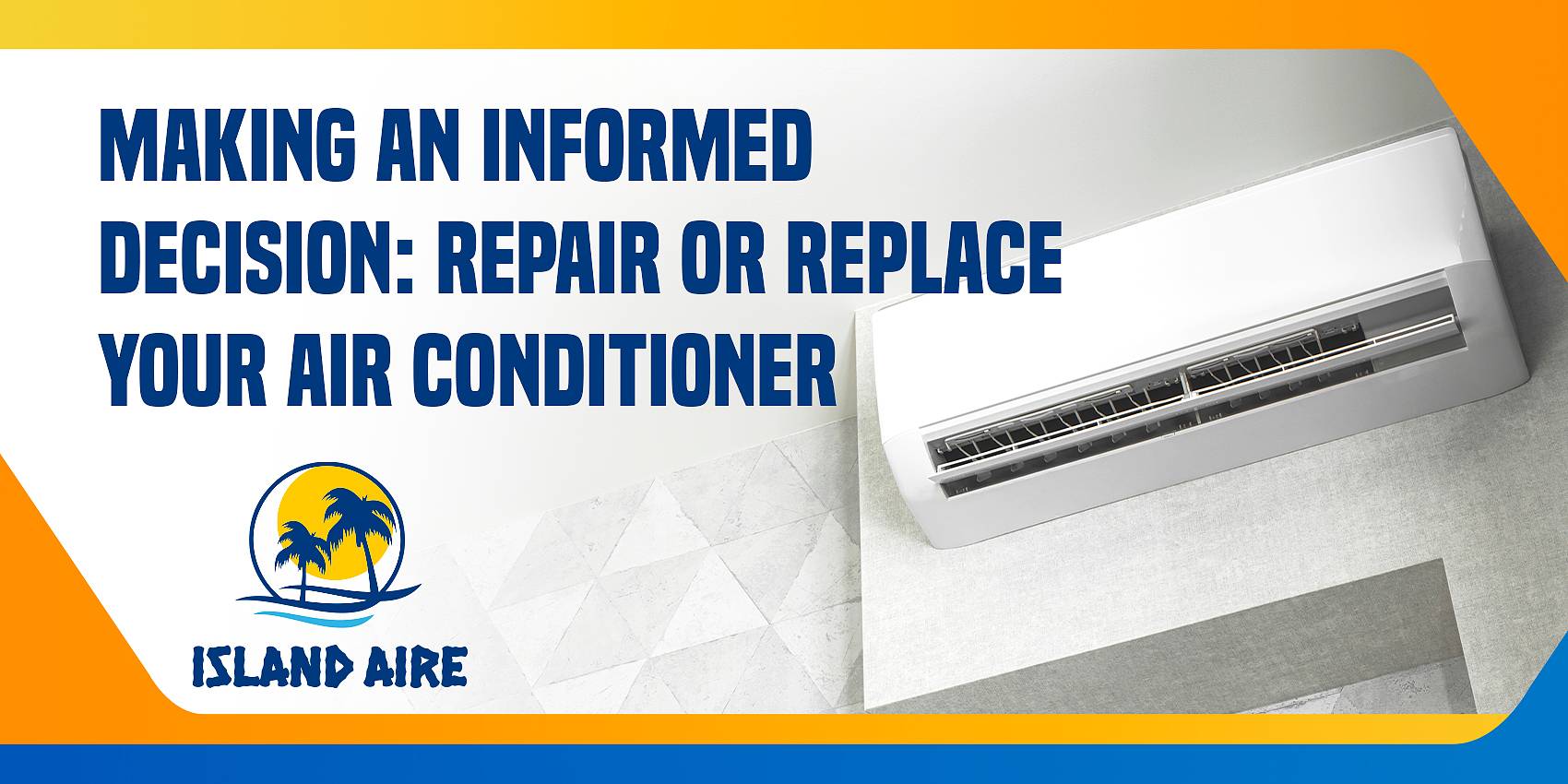Though air conditioner repair can prolong the life of your air conditioner, it may not be cost-effective in the long run. Sometimes, repairing an air conditioner is like putting a Band-Aid over a problem that requires surgery. If you’re facing frequent breakdowns and repair costs are adding up, it may be time to replace the unit altogether.
However, before you make such a decision, it’s essential to get an expert opinion about the condition of the air conditioner and whether it can be repaired or if replacement is the best option. In this blog, we’ll talk about the factors that determine whether you should repair or replace your air conditioning unit, as well as how obtaining expert advice can help you make an informed choice.
How Much Does AC Repair Cost?
The cost of repairing or replacing air conditioning equipment can vary greatly depending on the unit and the work involved. Smaller components may cost between $100 and $500, while more complex repairs can cost hundreds of dollars. Labor-intensive jobs may include detecting and repairing refrigerant leaks, which typically cost between $200 and $1,000. The cost to replace the TXV valve in an air conditioner unit typically ranges between $100 and $700. Replacing a compressor could cost between $2,000 and $4,000 while replacing an evaporator or condenser coil can cost up to $4,500 or more. Replenishing refrigerant costs between $75 and $125 per pound.
The overall cost of repairs or replacement will depend on factors such as the age of the unit and the type of repair needed. However, it’s important to consider the efficiency of your air conditioning system before making any decisions regarding its repair or replacement.
Consider Cost of Repair vs. Replacement
It’s important to consider cost when making an informed decision regarding whether to repair or replace your air conditioner. The average cost of replacing an air conditioner unit is $5,000. However, this cost can vary depending on the unit’s energy efficiency, size, and complexity of ductwork. It’s often a good idea to consult a professional before making a decision on which air conditioner to purchase or repair.
HVAC manufacturers or dealers may offer special discounts or rebates to customers that could reduce the total cost of replacing an air conditioner. Also, make sure to consider factors such as energy efficiency and cost savings when making your final choice.
Assessing Your Air Conditioner’s Condition
1. The efficiency of your air-conditioning system is an important factor when making an informed decision about whether to repair or replace your unit. When assessing the efficiency of your current system, consider the following factors:
– The age of the system – older air conditioning systems are more energy efficient but also have higher energy costs and longer warranties – newer air conditioning systems are more reliable and have a longer warranty
– How much air conditioning is needed
– The heating season – warm weather requires more cooling than colder seasons
– The heating season – warm weather requires more cooling than colder seasons
– How often the unit is used – regular use can lead to costly repair bills, while less usage can result in savings on energy costs
2. To ensure proper air conditioning, it’s vital to inspect the condition of ductwork for air leakage. This includes checking for broken or damaged insulation, condensation/vacuum leak, and worn HVaces. If necessary, you can contact a professional for a tune-up and servicing.
3. Finally, if your unit is older than 12 years old, runs constantly, and fails to adequately cool your house, consider upgrading it with new technology like a programmable thermostat, dehumidifier, variable-speed motor, or scroll technology. This will help improve the efficiency of your AC without costing you extra money.
Weighing the Pros and Cons of AC Unit Replacement
When it comes to AC unit repair vs. replacement, the costs of each can vary greatly depending on factors such as location, the difficulty of installation, the size of the home, and necessary electrical upgrades. This is where the 5,000 rule comes in. If the age of the air conditioner multiplied by the cost to repair it equals more than $5,000, it’s time to replace it. In general, air conditioner repairs are cheaper than replacements. But doing a repair instead of replacing an old unit isn’t always a good idea. The average cost to replace an air conditioner is around $4,500. On the other hand, repairing older models can cost as much as $3,000 or more. So make an informed decision based on your budget and needs.
Get Expert Advice from Our Professional Team
– If your air conditioner is not cooling your house, running loudly, or malfunctioning, it may be time to replace it. This is especially true if you’ve been experiencing these issues for a while or if they are becoming more common.
– It’s important to have regular maintenance of your air conditioner to ensure it is functioning properly. This includes checking the unit for any signs of wear and tear and having it serviced at the proper intervals by an air conditioning professional.
– If you suspect that your air conditioner needs repair, don’t make the repairs on your own. Instead, consult a professional HVAC technician to get a second opinion on whether to repair or replace the unit.
– Some older air conditioners may require replacement after ten years of use. In this case, consider investing in a unit with energy efficiency features, like a heating and air conditioning system with a refrigerant recovery system (RescueSCOP) that can help save money on energy costs over the lifespan of the unit.
Conclusion
If you’ve decided to repair, there are several factors to keep in mind. First and foremost, get multiple quotes for the repair work. Secondly, find out if the technician is qualified and has the proper accreditation. Not all technicians can replace air conditioner units. Once you’ve selected a technician, it’s important to maintain your air conditioner unit regularly by cleaning the condenser and allowing proper ventilation of the unit. Keep an eye on humidity levels and temperature, and make sure that air isn’t trapped or ducts are leaky. If you follow this advice, you won’t have to worry about repairs in the near future. Get in touch with us today!



